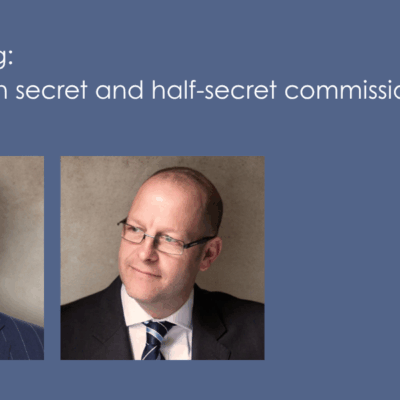
Daria Gleyze has recently appeared for the Claimant on a novel and complex point of law in respect of worldwide freezing injunctions (in an art law, company and civil fraud context). The judgment was handed down by Marcus Smith J and can be found at Santina Ltd v Rare Art (London) Ltd (t/a Koopman Rare Art) [2023] EWHC 807 (Ch).
In short, the Claimant is a company registered in the Seychelles which holds art and antiques. The Defendant is a world-leading antique silverware dealer. The Claimant alleges that the Defendant misrepresented (fraudulently, negligently or innocently) the provenance, ownership history and value of a pair of French antique silver-gilt soup tureens (fancy soup bowls which were sold for more than £180,000).
There were several interim applications before trial, determined in favour of the Claimant and some resulting in costs orders for the Claimant. The Defendant sought security for costs and its application came before Deputy Master Glover only 4 weeks before trial. Somewhat surprisingly, given the lateness of the hearing and the (at least partly) culpable delay by the Defendant, the Deputy Master made an unless order for security for costs (Santina Ltd v Rare Art (London) Ltd (t/a Koopman Rare Art) [2022] EWHC 3513 (Ch)). The Claimant obtained permission to appeal this order.
Some 4 months after the hearing before the Deputy Master, as the parties were awaiting the decision on the permission to appeal application, the Defendant applied without notice for a worldwide freezing injunction against the Claimant, to restrain the Claimant from taking the tureens out of the jurisdiction and/or dealing with them. The Defendant based the application on the (unsatisfied) security for costs order. The freezing injunction was granted ex parte and came before Marcus Smith J on the return date, which was a substantive hearing joined with the appeal and heard over two days.
There were many issues in dispute, which can be gleaned from the two judgments. On the freezing injunction, Marcus Smith J acknowledged the Claimant’s argument that the Defendant did not have a cause of action, but he held nevertheless that an unsatisfied security for costs order in the Defendant’s favour “is the essential equivalent of a cause of action” which could found jurisdiction. The Judge also restrained the Claimant from selling the tureens in order to raise funds to pay the security for costs.
The Claimant appealed to the Court of Appeal, who gave permission on four grounds: “The Appellant has a real prospect of success on four grounds: first, that no order should have been made since the Respondent has neither a cause of action nor an order for costs (other than for £14,000) in its favour … secondly, that the Respondent had failed to establish a real risk of dissipation …; thirdly, that no order should have been made because the proceedings were stayed; and fourthly, that there was no basis for preventing sale of the tureens in the absence of a proprietary claim”.
Daria continues to appear as sole counsel for the Claimant and will represent it in the Court of Appeal.




![Delivery matters: Gaster v. HMRC [2025] EWHC 328](https://threestone.law/wp-content/uploads/2024/01/Hallett_Katherine-400x400.jpg)
